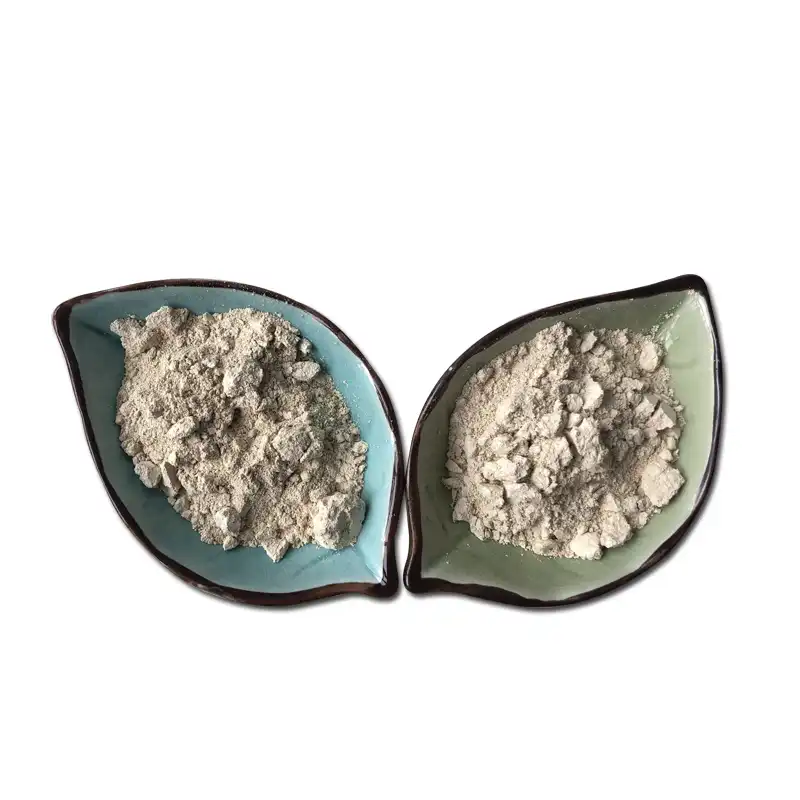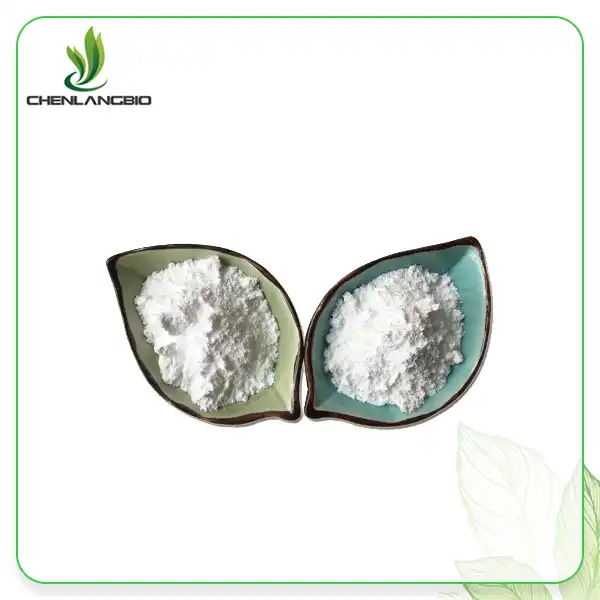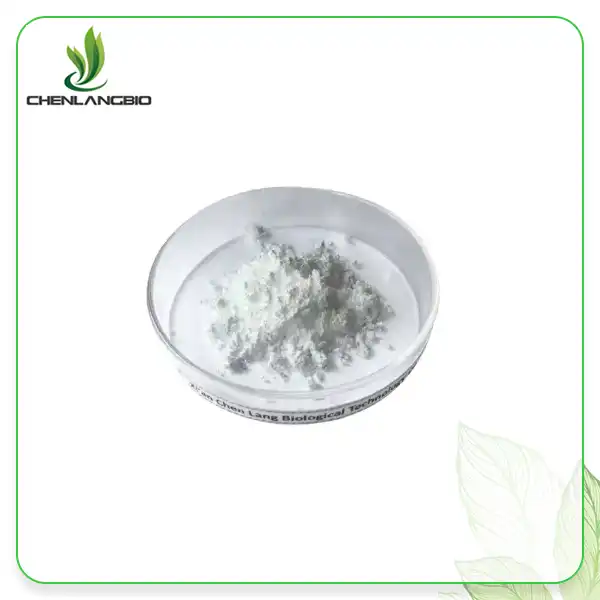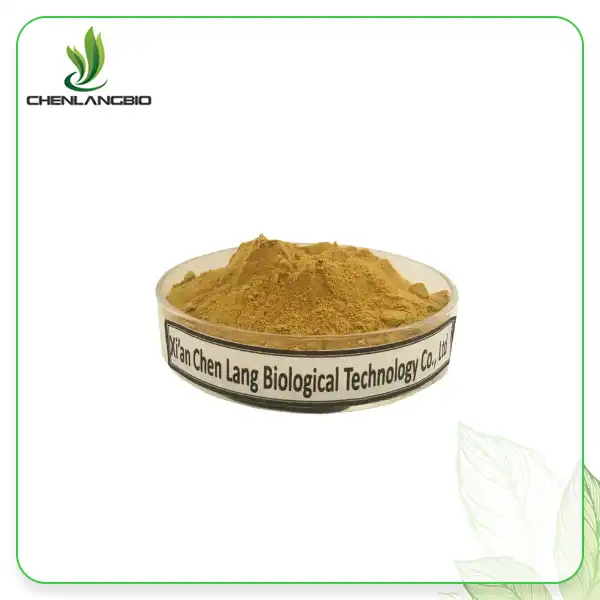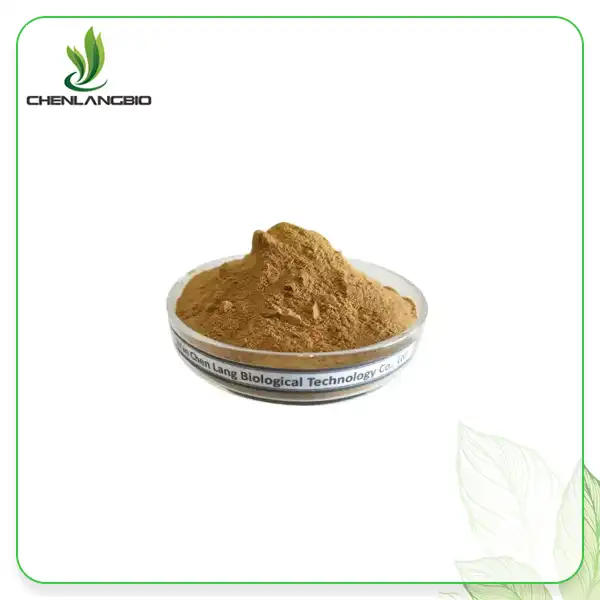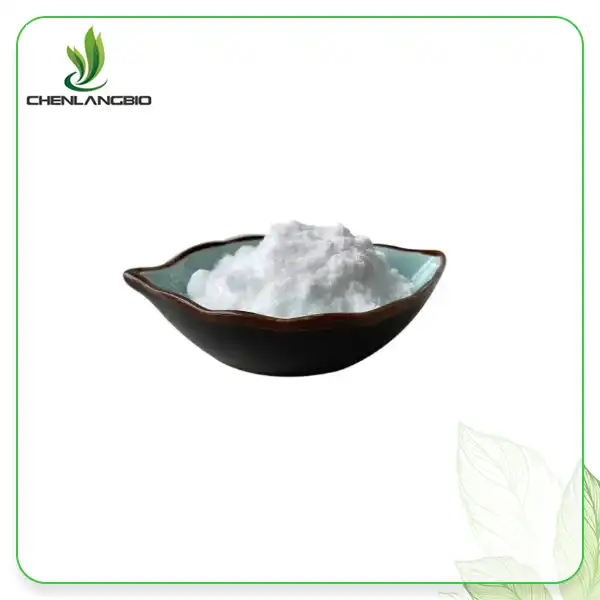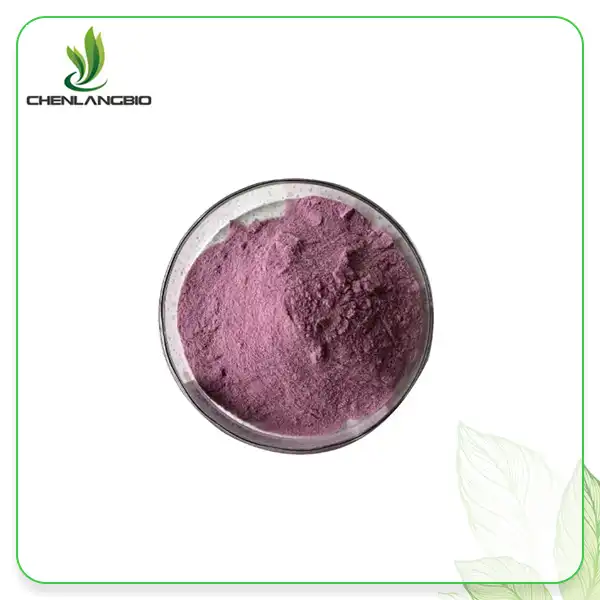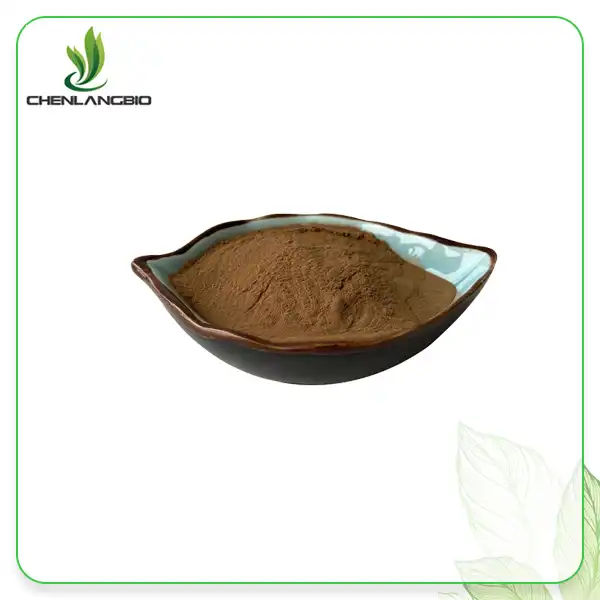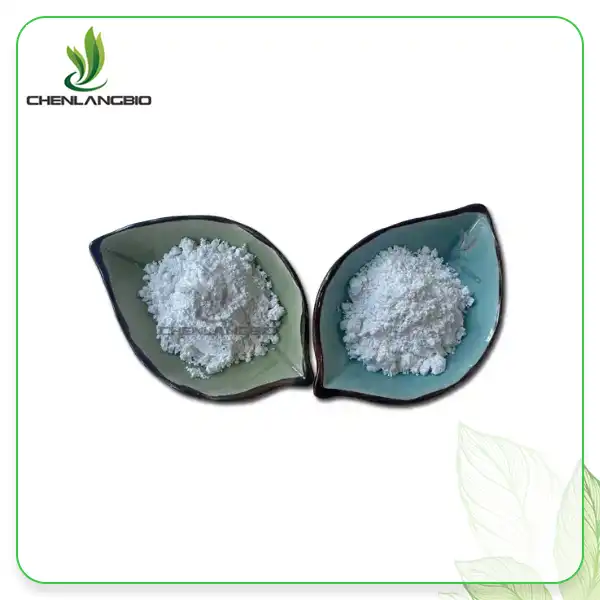How Can Diosmin Powder Help Combat Inflammatory Mediators?
2025-07-08 09:07:12
Inflammation is a fundamental biological response that, while protective in acute situations, can become detrimental when chronic and uncontrolled. The search for natural compounds capable of modulating inflammatory pathways has led researchers to explore the therapeutic potential of flavonoids, particularly those derived from citrus sources. Diosmin Powder emerges as a promising bioactive compound in this context, offering a natural approach to managing inflammatory processes. This remarkable flavonoid, extracted primarily from citrus fruits such as oranges and lemons, has demonstrated significant anti-inflammatory properties through its ability to target and neutralize various inflammatory mediators. Understanding how diosmin powder interacts with the body's inflammatory cascades provides valuable insights into its therapeutic applications and potential for improving human health outcomes across multiple physiological systems.
Mechanisms of Anti-Inflammatory Action Through Diosmin Powder
Inhibition of Pro-Inflammatory Cytokine Release
Diosmin Powder exerts its anti-inflammatory effects primarily through the suppression of pro-inflammatory cytokine production, which represents a critical mechanism in controlling systemic inflammation. The compound interferes with the nuclear factor-kappa B (NF-κB) signaling pathway, a master regulator of inflammatory gene expression. When inflammatory stimuli activate this pathway, it typically leads to the transcription of numerous pro-inflammatory genes, including those encoding interleukin-1β (IL-1β), tumor necrosis factor-alpha (TNF-α), and interleukin-6 (IL-6). Diosmin Powder effectively blocks this cascade by preventing the translocation of NF-κB to the nucleus, thereby reducing the synthesis of these harmful cytokines. Clinical studies have demonstrated that regular administration of Diosmin Powder significantly decreases circulating levels of these inflammatory markers, particularly in patients with chronic venous insufficiency and related vascular disorders. The flavonoid's ability to modulate cytokine production extends beyond mere suppression, as it also promotes the release of anti-inflammatory mediators such as interleukin-10 (IL-10), creating a more balanced inflammatory environment conducive to tissue healing and repair.
Modulation of Arachidonic Acid Metabolism
The regulation of arachidonic acid metabolism represents another crucial mechanism through which Diosmin Powder combats inflammatory mediators. Arachidonic acid serves as a precursor to various inflammatory lipid mediators, including prostaglandins, leukotrienes, and thromboxanes, which play pivotal roles in sustaining inflammatory responses. Diosmin powder demonstrates selective inhibitory activity against cyclooxygenase-2 (COX-2) and 5-lipoxygenase (5-LOX), two key enzymes responsible for converting arachidonic acid into pro-inflammatory eicosanoids. By targeting these enzymes, the compound effectively reduces the production of prostaglandin E2 (PGE2) and leukotriene B4 (LTB4), both potent inflammatory mediators associated with pain, swelling, and tissue damage. This dual inhibition is particularly significant because it addresses multiple inflammatory pathways simultaneously, providing more comprehensive anti-inflammatory coverage than compounds targeting only one pathway. Furthermore, Diosmin Powder enhances the activity of enzymes involved in the resolution of inflammation, such as specialized pro-resolving mediator (SPM) synthesis, facilitating the natural termination of inflammatory responses and promoting tissue homeostasis.
Regulation of Complement System Activation
The complement system, an integral component of innate immunity, can contribute significantly to inflammatory tissue damage when dysregulated. Diosmin Powder exhibits remarkable regulatory effects on complement activation, particularly through the alternative pathway, which is often implicated in chronic inflammatory conditions. The compound interferes with the formation of the membrane attack complex (MAC), a terminal complement product that can cause direct cellular damage and perpetuate inflammatory responses. Research has shown that Diosmin Powder binding to complement proteins alters their conformation, reducing their ability to form functional complexes and thereby limiting complement-mediated tissue injury. Additionally, the flavonoid enhances the expression and activity of complement regulatory proteins such as CD55 (decay-accelerating factor) and CD46 (membrane cofactor protein), which serve as natural brakes on complement activation. This regulatory mechanism is particularly important in vascular inflammation, where excessive complement activation can lead to endothelial dysfunction and increased vascular permeability. The ability of Diosmin Powder to fine-tune complement activity rather than completely suppress it represents a sophisticated approach to inflammation management, preserving beneficial immune functions while preventing excessive inflammatory damage.
Cellular and Molecular Targets of Diosmin Powder
Endothelial Cell Protection and Stabilization
Endothelial cells form the inner lining of blood vessels and play a crucial role in vascular homeostasis, making them primary targets for inflammatory damage. Diosmin Powder provides comprehensive protection to endothelial cells through multiple mechanisms that collectively enhance vascular integrity and function. The compound stabilizes endothelial cell membranes by incorporating into the lipid bilayer structure, increasing membrane fluidity and resistance to oxidative damage. This membrane-stabilizing effect is particularly important in preventing the increased vascular permeability that characterizes inflammatory conditions. Diosmin Powder also enhances the expression of tight junction proteins such as claudin-5 and occludin, which are essential for maintaining the blood-brain barrier and preventing unwanted leakage of inflammatory cells and mediators into tissues. The flavonoid's protective effects extend to the regulation of endothelial nitric oxide synthase (eNOS), an enzyme responsible for producing nitric oxide, a critical vasodilator and anti-inflammatory molecule. By maintaining eNOS activity and protecting it from inflammatory inactivation, Diosmin Powder helps preserve normal vascular tone and prevents the vasoconstriction associated with inflammatory states. Additionally, the compound reduces the expression of endothelial adhesion molecules such as VCAM-1 and ICAM-1, which are responsible for recruiting inflammatory cells to sites of inflammation, thereby breaking the cycle of continued inflammatory cell infiltration.
Leukocyte Adhesion and Migration Inhibition
The recruitment and activation of leukocytes at sites of inflammation represent critical steps in the inflammatory cascade, and Diosmin Powder demonstrates potent inhibitory effects on these processes. The compound interferes with the selectin-mediated rolling of leukocytes along the endothelial surface, the initial step in leukocyte extravasation. By reducing the expression of P-selectin and E-selectin on activated endothelial cells, diosmin powder diminishes the ability of circulating neutrophils and monocytes to establish initial contact with the vessel wall. Furthermore, the flavonoid inhibits the firm adhesion of leukocytes by preventing the activation of integrins, particularly β2 integrins such as CD11b/CD18, which are essential for stable leukocyte-endothelial interactions. This inhibition is achieved through the modulation of intracellular signaling pathways, including the suppression of protein kinase C (PKC) activation and the reduction of intracellular calcium mobilization. Diosmin Powder also impairs leukocyte transmigration across the endothelial barrier by affecting the reorganization of the cytoskeleton and the formation of transcellular pores. The compound's ability to reduce chemokine production, particularly CCL2 (MCP-1) and CXCL8 (IL-8), further limits the recruitment of inflammatory cells to affected tissues. This comprehensive inhibition of leukocyte recruitment and activation results in reduced tissue infiltration by inflammatory cells and consequently decreased local production of inflammatory mediators.
Mast Cell Degranulation Prevention
Mast cells serve as sentinel cells in tissues, capable of rapidly releasing preformed inflammatory mediators upon activation, making them important targets for anti-inflammatory interventions. Diosmin Powder exhibits significant mast cell-stabilizing properties, preventing the degranulation that leads to the release of histamine, leukotrienes, and other inflammatory substances. The compound achieves this stabilization through multiple mechanisms, including the modulation of intracellular calcium signaling, which is essential for mast cell degranulation. By interfering with calcium influx through voltage-gated calcium channels and inhibiting calcium release from intracellular stores, Diosmin Powder effectively prevents the calcium-dependent fusion of granules with the cell membrane. The flavonoid also influences the phosphorylation status of key proteins involved in degranulation, particularly by inhibiting protein kinase C activation and reducing the phosphorylation of myosin light chain, both crucial for granule movement and exocytosis. Additionally, Diosmin Powder enhances the production of cyclic adenosine monophosphate (cAMP) within mast cells, which acts as a natural brake on degranulation processes. This elevation in cAMP levels is achieved through the inhibition of phosphodiesterase enzymes and the activation of adenylyl cyclase. The mast cell-stabilizing effects of Diosmin Powder are particularly beneficial in allergic and pseudo-allergic reactions, where mast cell activation plays a central role in symptom development. By preventing inappropriate mast cell degranulation, the compound helps maintain tissue homeostasis and prevents the cascade of inflammatory events that can lead to chronic inflammation.
Clinical Applications and Therapeutic Benefits of Diosmin Powder
Vascular Inflammatory Conditions Management
Vascular inflammatory conditions represent one of the most extensively studied applications of Diosmin Powder, with numerous clinical trials demonstrating its efficacy in managing chronic venous insufficiency, varicose veins, and related circulatory disorders. The compound's anti-inflammatory properties are particularly valuable in addressing the underlying pathophysiology of these conditions, where chronic inflammation contributes to endothelial dysfunction, increased capillary permeability, and progressive venous wall deterioration. Diosmin Powder works by reducing the production of inflammatory mediators within the vessel wall, particularly matrix metalloproteinases (MMPs) that degrade collagen and elastin, leading to weakened venous structure. Clinical studies have shown that patients receiving Diosmin Powder therapy experience significant reductions in leg swelling, pain, and heaviness associated with venous insufficiency, with improvements typically observed within 4-6 weeks of treatment initiation. The compound also enhances lymphatic drainage by increasing the frequency and amplitude of lymphatic contractions, helping to reduce tissue edema and improve overall circulation. Long-term treatment with Diosmin Powder has been associated with improved venous tone and reduced progression of venous disease, making it a valuable component of comprehensive vascular health management. The safety profile of Diosmin Powder in vascular applications is excellent, with minimal side effects reported even with prolonged use, making it suitable for long-term management of chronic conditions.
Hemorrhoidal Disease Treatment Protocols
Hemorrhoidal disease, characterized by inflamed and swollen veins in the rectal and anal regions, represents another significant clinical application where Diosmin Powder demonstrates remarkable therapeutic benefits. The pathophysiology of hemorrhoids involves chronic inflammation of the hemorrhoidal plexus, increased venous pressure, and weakening of the supporting tissues, all of which are addressed by the multi-faceted anti-inflammatory actions of this flavonoid. Diosmin Powder reduces local inflammation by inhibiting the production of inflammatory cytokines and chemokines that contribute to tissue swelling and pain. The compound also strengthens the venous wall by promoting collagen synthesis and preventing enzymatic degradation of structural proteins, leading to improved venous tone and reduced prolapse. Clinical trials have demonstrated that diosmin powder therapy significantly reduces bleeding, pain, itching, and swelling associated with hemorrhoidal disease, with symptom improvement often observed within the first week of treatment. The compound's ability to improve microcirculation in the anal region enhances tissue healing and reduces the risk of complications such as thrombosis and infection. Furthermore, Diosmin Powder helps normalize bowel movements by reducing anal sphincter spasm and improving local blood flow, which can contribute to the overall management of hemorrhoidal symptoms. The non-invasive nature of Diosmin Powder therapy makes it an attractive first-line treatment option for patients with mild to moderate hemorrhoidal disease, often eliminating the need for surgical intervention.
Lymphedema and Edema Reduction Strategies
Lymphedema, characterized by the accumulation of protein-rich fluid in tissues due to impaired lymphatic drainage, presents unique challenges that are effectively addressed by the anti-inflammatory and lymphatic-enhancing properties of Diosmin Powder. The compound's mechanism of action in lymphedema management involves both direct effects on lymphatic vessels and indirect benefits through the reduction of tissue inflammation that can impair lymphatic function. Diosmin Powder enhances lymphatic contractility by increasing the sensitivity of lymphatic smooth muscle to endogenous contractile stimuli and improving the coordination of lymphatic contractions. This enhanced contractility translates to improved lymphatic pumping efficiency and better clearance of accumulated fluid and inflammatory debris from affected tissues. The compound also reduces lymphatic capillary permeability, preventing the excessive leakage of protein and fluid into the interstitial space that can overwhelm the lymphatic system's capacity for drainage. Clinical studies in patients with various forms of lymphedema have shown that Diosmin Powder therapy leads to significant reductions in limb circumference, improved skin texture, and reduced susceptibility to recurrent infections. The anti-inflammatory effects of the compound help break the cycle of chronic inflammation that can perpetuate lymphatic dysfunction and tissue fibrosis. Patients typically experience gradual but sustained improvement in symptoms over several months of treatment, with the best results achieved when Diosmin Powder is combined with appropriate physical therapy and compression measures. The compound's excellent tolerability profile makes it suitable for long-term use, which is often necessary for optimal management of chronic lymphedema.
Conclusion
Diosmin powder represents a scientifically validated and clinically proven approach to combating inflammatory mediators through multiple complementary mechanisms. Its ability to modulate cytokine production, regulate complement activation, stabilize cellular membranes, and enhance vascular function positions it as a valuable therapeutic agent for various inflammatory conditions. The extensive research supporting its efficacy, combined with its excellent safety profile, makes Diosmin Powder an attractive option for both healthcare providers and patients seeking natural anti-inflammatory solutions. Ready to harness the anti-inflammatory power of premium Diosmin Powder for your formulations? At CHENLANGBIO, we combine cutting-edge extraction technology with rigorous quality standards to deliver pharmaceutical-grade Diosmin Powder that meets the highest industry specifications. Our GMP-certified facilities, comprehensive testing protocols, and commitment to sustainability ensure you receive consistent, high-potency products backed by our expert technical support team. With over 30 patents and partnerships with leading research institutions, we're not just suppliers – we're your innovation partners in developing next-generation anti-inflammatory solutions. Contact us today at admin@chenlangbio.com to discuss your specific requirements and discover how our premium Diosmin Powder can enhance your product portfolio while delivering superior therapeutic outcomes for your customers.
References
1. Martinez-Zapata, M.J., Vernooij, R.W., Uriona Tuma, S.M., Stein, A.T., Moreno RM, Vargas, E., Capellà, D., & Bonfill Cosp, X. (2016). Phlebotonics for venous insufficiency: A systematic review and meta-analysis of randomized controlled trials. BMJ, 353, i1729.
2. Lyseng-Williamson, K.A., & Perry, C.M. (2003). Micronised purified flavonoid fraction (Daflon 500 mg): A review of its use in chronic venous insufficiency, venous ulcers and haemorrhoids. Drugs, 63(1), 71-100.
3. Ramelet, A.A., Kern, P., Perrin, M., & Bounameaux, H. (2005). Compression therapy in chronic venous disorders: A clinical practice guideline developed in collaboration with the International Union of Phlebology. International Angiology, 24(3), 202-219.
4. Bouskela, E., Cyrino, F.Z., & Marcelon, G. (1994). Inhibitory effect of the Ruscus extract and of the flavonoid hesperidin methylchalcone on increased microvascular permeability induced by various agents in the hamster cheek pouch. Journal of Pharmacy and Pharmacology, 46(1), 61-65.
Send Inquiry
Related Industry Knowledge
- What Concentration of Kojic Acid Dipalmitate is Most Effective?
- Sesamin Powder for Inflammation and Wellness
- How Does Minoxidil Work?
- Where to Buy Quality Durian Fruit Powder
- What Are the Benefits of Alpha-GPC Capsules
- Unveiling the Wonders of Phloretin Powder Extract from Apple Peel
- What is Oat Straw Extract Good for
- What Are Kudzu Root Extract Pure Puerarin Powder Good for Women?
- What does Tribulus Terrestris Extract Powder Do to the Body
- What are the Health Benefits of Bitter Melon Extract Powder

